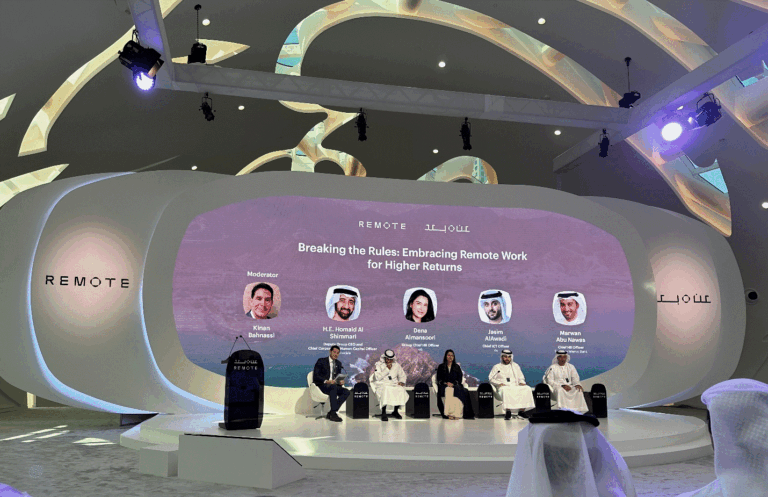The UAE is calling for the implementation of flexible work options to enhance productivity across economic sectors. The country’s technological advancements provide a solid infrastructure to support workers in the digital era, said Omar Al Olama, Minister of State for Digital Economy, AI and Remote Working System, during the Remote Forum event in Dubai. The UAE aims to leverage artificial intelligence and automation to enhance its economic capacity-building process and workforce capabilities.
Remote work has now become the norm rather than an option, with 46% of workers in the UAE working remotely, according to a report by UK research company YouGov. The use of remote work surged during the Covid-19 pandemic and necessitated a change in the way companies operate. Technology played a significant role in advancing the use of remote work, with companies boosting their offerings to support the growing demand for digital services.
READ ALSO:
OpenAI’s ChatGPT Plus, featuring GPT-4 now available in India for a monthly subscription of $20
UK Chancellor announces £2.5bn quantum computing investment and AI sandbox
To support remote work, the UAE introduced several initiatives, including a one-year digital nomad visa in March 2021. The rise of remote work presents an opportunity for countries to attract these workers who can further support local economic growth and innovation.
The UAE’s focus on the digital economy is evident in various programmes it has unveiled to enhance its economy. These initiatives include the Entrepreneurial Nation programme that aims to develop more than 8,000 SMEs and start-ups by 2030 and Future 100, which supports and honours the top 100 start-ups that will have a significant impact on the Emirates’ economy.




